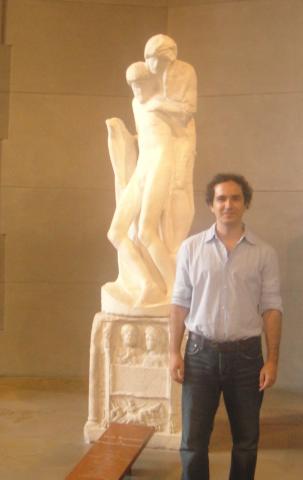Antonio Rueda
Job Title
Associate Teaching Professor, Department of Spanish and Portuguese Studies
Profile Photo
Image

Preferred Pronouns
he/him/his
My primary research is centered on the literary, visual and socio-historical analysis of marginalized communities in early modern Europe and the Mediterranean world. My journey as a humanist begins with the acknowledgment of humanity’s inherent dignity and evolves into a dedication to reason and knowledge in pursuit of collective progress. In order to achieve this goal, I delve into questions concerning human existence, ethics, and societal change. Marginalized minorities, such as Romani people or enslaved and free Black Africans, were crucial to early modern discourse, and are still today essential voices in the ongoing struggle for equity and justice. Their experiences and perspectives continue to shape narratives, challenge dominant paradigms, and advocate for inclusive transformation of our society. A humanist, in my view, is someone who contributes to amplify the voices of these communities through teaching and research. By incorporating these perspectives, humanists scrutinize how society constructs its worldview and power dynamics, addressing the issues that arise at the margins. As an educator, I believe in the need to empower students to engage with complex issues that explore topics like historical marginalization to uncover truths for a more equitable society. Humanist teacher-scholars play a decisive role in reshaping societal understanding and advocating for meaningful social change, aiming to bring those at the margins to the forefront of discourse and action.